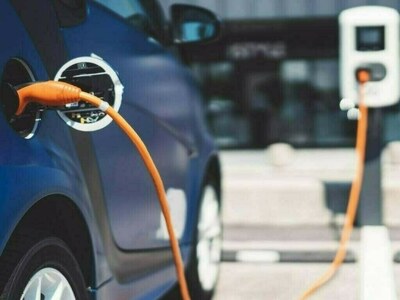2nd Electric Vehicles Conference Highlights Sector’s Potential and Challenges
LAHORE: The second Electric Vehicles (EV) conference convened in Lahore this past Saturday, uniting industry experts, government officials, financial institutions, and environmental advocates. The aim was to foster dialogue on Pakistan’s evolving EV sector, emphasizing both its opportunities and hurdles.
The conference, a collaborative effort by the Climate Action Centre (CAC) and PakEVO, with sponsorship from the Bank of Punjab, signifies a crucial stride in harmonizing public and private initiatives. The focus is on encouraging the acceptance and domestic production of EVs within the nation.
Umer Khan, who heads Investment Banking, FI & Corporate Banking Central at the Bank of Punjab, conveyed his optimism regarding the future of EVs and related infrastructure in Pakistan during his address.
Government Support Vital for EV Adoption
Khan stated that substantial government assistance, such as subsidies and tax incentives, is essential to significantly boost EV adoption and conversion, drawing from successful models implemented in other countries globally. He also mentioned the substantial funds and credit enhancements that are accessible for climate finance and EV projects, emphasizing the need to approach international DFIs with compelling proposals to secure these resources.
Dr. Aazir Khan, in his keynote, introduced PakKEVO, a recently established initiative dedicated to advancing EV education, collaboration, and policy advancements. He drew attention to previous chances missed because Pakistan’s financial situation hindered the allocation of funds towards crucial EV projects.
Aligning Fiscal Priorities with Sustainable Energy Goals
Dr. Aazir emphasized the importance of ensuring that financial priorities align with sustainable energy objectives, particularly given that climate resilience and environmentally friendly infrastructure are now essential. Discussions at the conference highlighted that while global EV sales experienced growth of almost 40% between 2023 and 2024, Pakistan’s market share remains notably low. However, a sense of measured optimism prevailed due to several positive developments.
One such development is Daewoo’s ambitious plan to replace its diesel buses with EVs on shorter routes connecting cities near Lahore, such as Sialkot.
Sheriar Hassan of Daewoo shared during the initial panel discussion that their objective is to convert their entire short-route fleet to electric vehicles within the next two years, noting that financing collaborations with the Bank of Punjab are already in progress.
Distribution companies (DISCOs) are encountering significant challenges related to capacity and load management, rendering long-distance EV bus operations unfeasible at present. Sheriar pointed out that while Daewoo successfully launched its inaugural electric bus pilot project between Lahore and Sialkot, expanding to larger intercity routes like Islamabad and Lahore will necessitate considerable time and substantial investment.
Panelists also underscored Pakistan’s considerable potential to evolve into a prominent regional EV manufacturing hub. Localization was emphasized as a key theme, with Nauman Alvi from EVEE Motors highlighting that the increase in two-wheeler sales, reaching 1.4 million units in 2024, was largely attributed to local production of affordable 70cc and 125cc models.
He advocated for similar localization initiatives for EV components, starting with plastic parts, which account for 15-20% of vehicle expenses. He further emphasized that widespread EV adoption hinges on achieving economies of scale.
Noman Alvi shared data indicating that 20% of EV users in Pakistan are women, contrasting with less than 1% in traditional automotive markets, thus underscoring the importance of female education and awareness initiatives in promoting adoption.
Saleha Hassan, a key official at DFML, challenged the notion that EVs are solely luxury items, asserting that investing in EVs represents a lifestyle change and a practical decision. She also mentioned that hatchbacks constitute 52% of the EV market, signifying strong consumer preference. DFML, Saleha’s firm, produces the Honri hatchback EV. She recommended discouraging Completely Built-Up (CBU) units while encouraging Completely Knocked-Down (CKD) assembly by the government.
Despite these encouraging indicators, substantial obstacles persist. Pakistan’s charging infrastructure is still in its early stages, limiting EVs to mainly short-distance commutes within urban areas.
Financial constraints present another layer of complexity. Globally, high battery costs (constituting 30-40% of EV expenses) and uncertainty regarding resale values deter potential buyers. In Pakistan, these challenges are amplified by economic instability, elevated interest rates, and a shortage of consumer financing options. Nevertheless, successful initiatives such as the CM Punjab’s Interest-Free Bike Scheme provide replicable frameworks for broader EV financing programs.
The conference also investigated creative financing strategies like green bonds, battery leasing, and collaborations between the public and private sectors. Panelists referenced international models, such as the US Inflation Reduction Act and Europe’s zero-interest loans, to illustrate how strategic financing can stimulate EV ecosystems.
Speakers unanimously concurred that robust policy support and collaboration among government entities, financial institutions, and manufacturers are crucial. Yasir Husain, Director at CAC and the conference’s chief organizer, emphasized the need to transition climate action from mere rhetoric to tangible actions, highlighting EVs as a means to bridge economic resilience and environmental stewardship.
Throughout the sessions, representatives from the manufacturing and financial sectors emphasized that local assembly projects could establish the country as a strategic export center. The localization of battery production is also anticipated to commence soon, promising a more resilient supply chain.
Zulfiqar Younas from the Ministry of Climate Change and Dr. Umer Masud, Secretary of the Ministry of Industries and Production (MoIP), also delivered speeches during the event.
The conference concluded positively, with participants emphasizing the necessity for prompt and coordinated action to capitalize on the sector’s potential. With the global EV market expanding and Pakistan’s youth demographic providing a receptive consumer base, stakeholders concurred that fragmented efforts are no longer sufficient, and a national EV ecosystem is not only an environmental imperative but also an economic necessity.



Comments (0)
No comments yet. Be the first to comment!
Leave a Comment